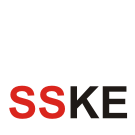From SSKE
(Difference between revisions)
| (One intermediate revision by one user not shown) | |||
| Line 1: | Line 1: | ||
<span style="font-size:large">[[SSKE Knowledge/isPartOfProgram::FEUP MESG - Services Engineering and Management]]</span> | <span style="font-size:large">[[SSKE Knowledge/isPartOfProgram::FEUP MESG - Services Engineering and Management]]</span> | ||
| − | = | + | <span style="font-size:large">Multimedia and New Services</span> |
=== Objectives, Skills and Learning Outcomes === | === Objectives, Skills and Learning Outcomes === | ||
| Line 32: | Line 32: | ||
Visit the [http://sigarra.up.pt/feup_uk/disciplinas_geral.FormView?P_CAD_CODIGO=ESG0025&P_ANO_LECTIVO=2011/2012&P_PERIODO=1S MESG Multimedia and New Services Course site]. | Visit the [http://sigarra.up.pt/feup_uk/disciplinas_geral.FormView?P_CAD_CODIGO=ESG0025&P_ANO_LECTIVO=2011/2012&P_PERIODO=1S MESG Multimedia and New Services Course site]. | ||
| − | [[ | + | [[SSKE Knowledge/isTaughtBy::Cunha, Manuel | ]] |
| − | [[SSKE Knowledge/ | + | [[Category:SSKE Knowledge/University Course|SSKE_Knowledge/University_Course]] |
Latest revision as of 23:54, 18 May 2012
FEUP MESG - Services Engineering and Management
Multimedia and New Services
Objectives, Skills and Learning Outcomes
- Analyze and discuss the structuring role of communications and its impacts on organization and economic and social development of societies (companies, citizens, public administration).
- Understanding the technological trends of telecommunications (networks, terminals, services).
- To be acquainted with the relevant aspects of the sector in Portugal and in the world.
- Mastering some basic technological concepts to facilitate multi-disciplinary dialogue in organizations, either internal collaborative processes or in the external relationship with partners, suppliers or customers of the value chain.
- Learn to make use of ICT (as part of multimedia communication) to promote innovation, whether in business models, in production processes or decisions, products and services.
- To be acquainted with the incorporation of electronic communication platforms in the construction and provision of services, using real case studies.
Program
- ICT, SI and Services (the C-Communications factor )
- Historical evolution and Telecommunication trends (networks, terminals, services, applications)
- Basic concepts of technology, models of operators and regulatory framework
- The integrated, convergent and multi-media nature of communication platforms
- Public and private networks, fixed and mobile, local and global (for voice, data and image)
- Fixed telephone networks / wireless, data networks for packages, cable networks for TV,
- Network Access and Core Networks, Networks of New Generation
- Means of Transmission and Switching, Protocols and Signaling; Terminals
- Provision of Triple-play services (fixed / mobile telephone, internet and television)
- 3 structures model
- The IP world (IP protocols, VPN networks and integrated services)
- The Internet, Intranet and Extranet in Value Chains of Industries, Business-Web
- The Internet of Objects, the ubiquity of processors and global connectivity
- The new Anywhere paradigm (the tripod IP Networking, Broadband and Mobility)
- Real case studies presented by guests for analysis of value creation
Visit the MESG Multimedia and New Services Course site.



